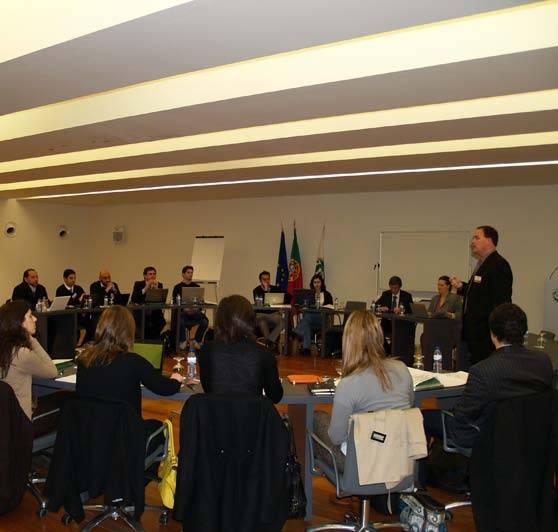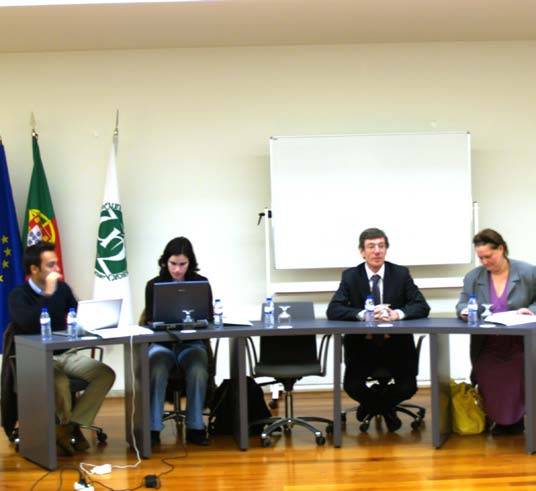March UTEN Workshop on University Spin-Outs and Venture Creation
Interdisciplinary research,
education and capacity building
16 Apr 2010
In March 2010, 22 technology transfer professionals attended a UTEN workshop at the New University of Lisbon.
In March 2010, UTEN held a workshop on university spin-outs and models for venture creation. The workshop featured Brett Cornwell, director of commercialization services for Texas A&M University System, professor of technology commercialization at the IC2 Institute at the University of Texas, and former technology commercialization specialist for NASA. Ana Paula Amorim, UTEN liaison; Maria Jose Francisco, UTEN Portugal program manager; and Eli D. Mercer, UTEN Austin program manager for technology transfer and commercialization, represented the UTEN team.
UTEN would like to thank the 22 technology transfer professionals (including licensing professionals, entrepreneurship advisors, and incubator managers) from Portugal who attended the sessions for an excellent exchange of ideas. The New University of Lisbon (UNL) graciously hosted the event. UTEN's special thanks to UNL and especially to Dina Chaves, a 2009 UTEN Austin intern.
The Workshop's Agenda
Day 1
Morning- Brett introduced a “why do we exist and what are we trying to accomplish” discussion. Facilitators challenged participants to consider goals, impact, and role within the university ecosystem.
Afternoon- Brett introduced key concepts of the pre-reading materials regarding OTC best practices. He described his vision for “taking your OTC from an appendix to the heart of the university.” Facilitators challenged participants to consider the role(s) they currently play; directions they would like to take, as an office; and ways in which they might achieve their directional goals.

Day 2
Morning- Brett described the A&M philosophy, model, and matrix for technology classification. It links directly to the A&M methodology for making informed decisions regarding path-to-market, venture vs. licensing focus, resource allocation, etc.
Afternoon- Eli introduced the topic of business intelligence/competitive intelligence as a tool for decision-making and support using the A&M model and methodology as an effective example. He then presented, compared, and contrasted three tools used in IC2 and partner OTCs:
- The UT OTC Methodology
- The Quicklook Methodology
- The Rapid Screen Methodology.
Facilitators challenged participants to consider ways in which their offices could formalize decision-making processes. Participants formed teams and map technologies using Brett’s matrix and approach.
Day 3
Morning- Eli introduced his methodology for and approach to creating a data grid for team intelligence gathering. Facilitators challenged participants to consider ways to incorporate data mapping into their processes and to map technologies on Brett’s matrix based on their evaluations.
Afternoon- Participants shared presentations and conclusions from the A&M approach and the context within their ecosystems. Brett and the UTEN team provided feedback. The group discussed ways to leverage lessons shared to successfully achieve commercialization goals through effective venture creation techniques and careful selection of technologies for university spin-outs.


 News
News
